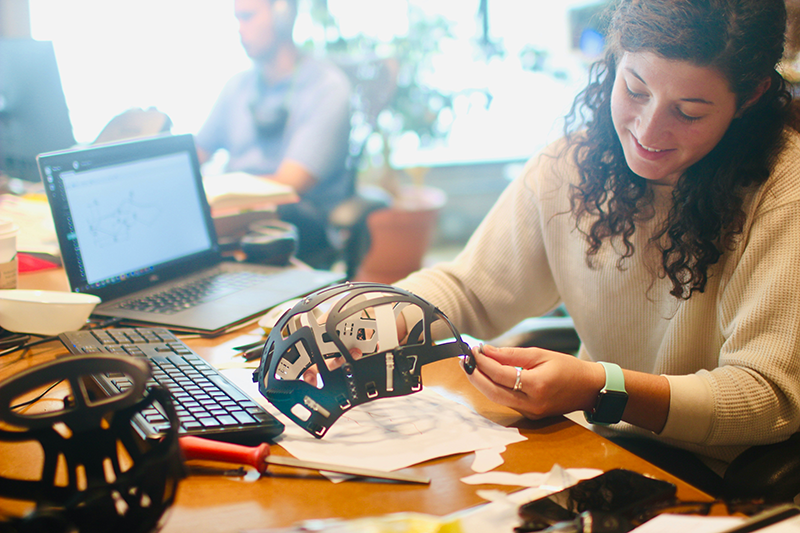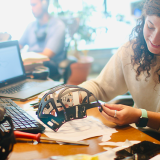
Delovne razmere in trajnostno delo
Delovne razmere in trajnostno delo sta ena od šestih glavnih dejavnosti iz Eurofoundovega delovnega programa za obdobje 2021–2024. Eurofound bo še naprej deloval kot središče strokovnega znanja za spremljanje in analiziranje dogajanja na tem področju, vključno z vplivom krize zaradi covida-19 na delovne razmere in kakovost delovnih mest ter prakse na delovnih mestih.
V obdobju 2021–2024 bo zagotovil pomemben vpogled v izzive in obete, povezane z delovnimi razmerami in trajnostnim delom v EU. Na podlagi dobro uveljavljenega strokovnega znanja na tem področju bo proučeval trende in napredek skozi čas ter opredelil nova problematična področja v zvezi z delovnimi pogoji in kakovostjo delovnih mest. Analiza bo zajela različne države, gospodarske panoge, poklice in skupine delavcev ter bo usmerjena v vprašanja, kot so organizacija dela in delo na daljavo , delovni čas , usklajevanje poklicnega in zasebnega življenja , enaka obravnava , zdravje in dobro počutje na delovnem mestu , znanja, spretnosti in usposabljanje , zaslužek in možnosti napredovanja ter zadovoljstvo na delovnem mestu. Poseben poudarek bo na nestandardnih zaposlitvah , zlasti samozaposlitvi.
Ob upoštevanju demografskega izziva, ki ga za EU predstavljata starajoče se prebivalstvo in vedno večja raznolikost delovnega življenja, bo Eurofound še naprej raziskoval dejavnike, ki bi več delavcem omogočili, da na delovnem mestu ostanejo dlje. V vlogi akterja, ki omogoča večjo udeležbo na trgu dela in višjo motivacijo zaposlenih ter prispeva k trajnostnemu delu med celotno življenjsko dobo, pa bo v središče postavil tudi vprašanje izboljšanja kakovosti delovnih mest.
Povezave med delom in zdravjem bo proučeval v tesnem sodelovanju z Evropsko agencijo za varnost in zdravje pri delu (EU-OSHA). Eurofound skrbi, da njegovo delovanje na področju vprašanj o prihodnosti dela in delovnih razmerah na svetovni ravni poteka v sodelovanju z Mednarodno organizacijo dela (MOD).
- Infografika: Delovne razmere in trajnostno delo v EU
„Na splošno je stanje spodbudno, saj se delovne razmere v Evropski uniji izboljšujejo (čeprav zelo počasi), vendar ostaja zaskrbljenost, da to ne velja nujno za vse skupine delavcev. Okoliščine so zelo odvisne od gospodarske dejavnosti, v kateri posameznik dela, odvisne so od izobrazbe, iskreno povedano pa so odvisne tudi od tega, ali ste moški ali ženska.“
Barbara Gerstenberger, vodja enote za poklicno življenje
































